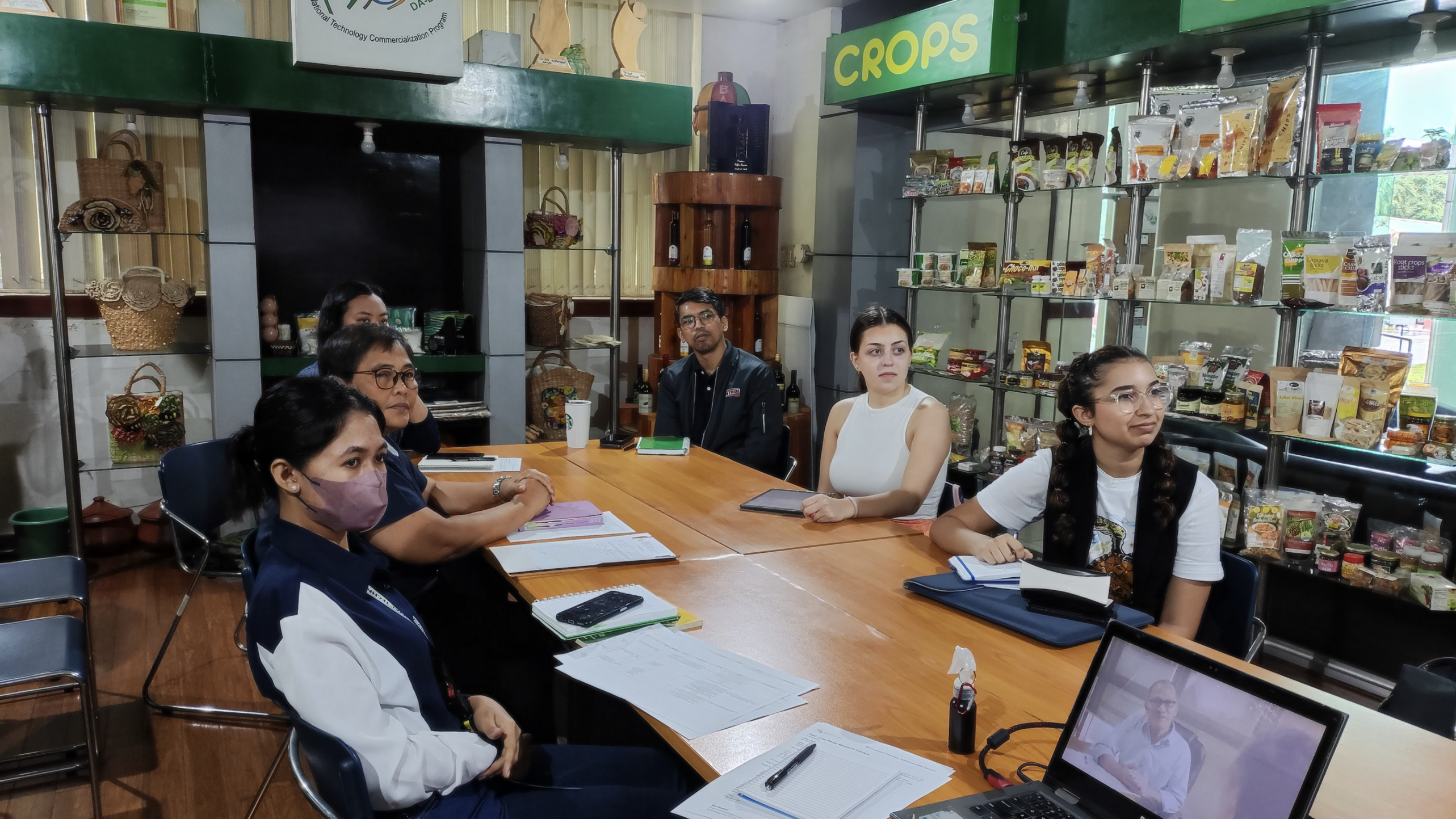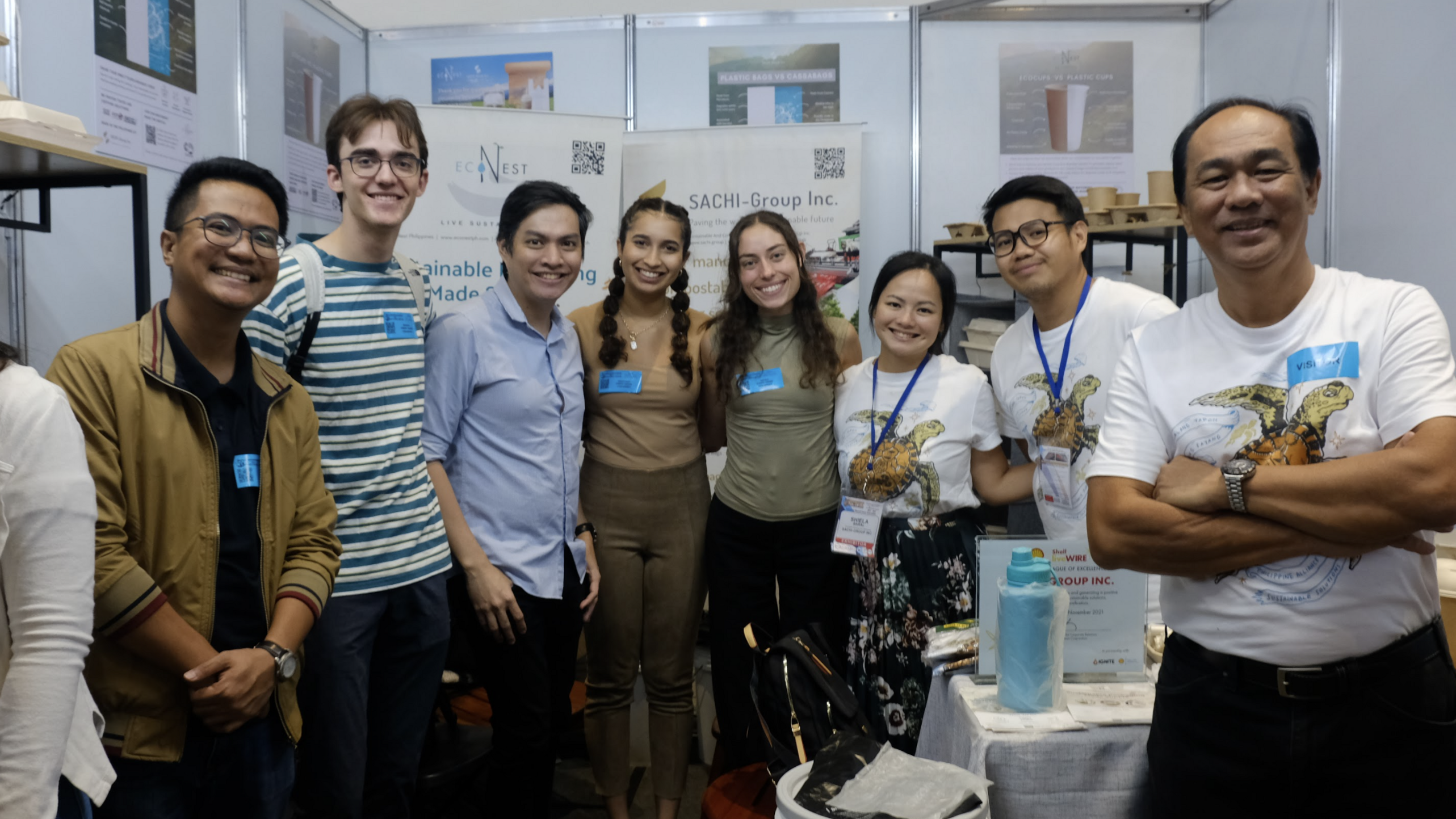Project Mentor: Prof. Thomas Gartner, Chemical & Biomolecular Engineering
Continuing Fellow:
Elizabeth Jenulis '27
2026 Impact Fellows:
Logan Alexander '29
Sophia Boothe '29
Sonali Sharpe '28
Mikaela Villajoaquin '29
Project Description:
Every week, millions of people across Metro Manila enjoy meals from street vendors, restaurants, and fast-food chains. Unfortunately, many of these businesses rely on single-use packaging products, contributing to the growing waste problem in the Philippines. AgriWrap is investigating how agricultural waste can be transformed into viable, eco-friendly packaging alternatives for food and consumer products.
Our innovation is a bioplastic film made from cassava and corn starch. We developed a compostable wrap suitable for items such as burgers or sandwiches.
This summer, our team met with potential customers, including shawarma and burger vendors, to gather feedback on early prototypes. We also connected with a bioplastic manufacturer to better understand the production process and explore potential collaborations.
The project’s next steps include further developing our bioplastic to improve its strength and durability in common food industry use cases. We are also exploring other applications for the film and eventually plan to create pellets for molding into other classes of consumer products (e.g. plastic bags). We’re also pursuing research grants and partnerships to advance product development and scale our impact.
AgriWrap welcomes students from all majors who are passionate about sustainability, materials innovation, and product development.






